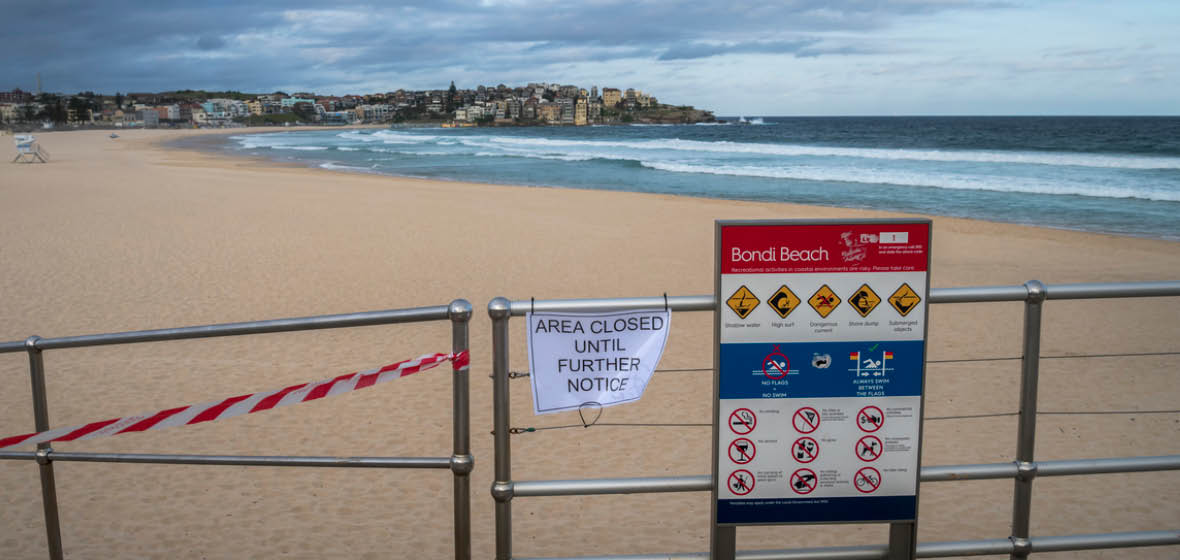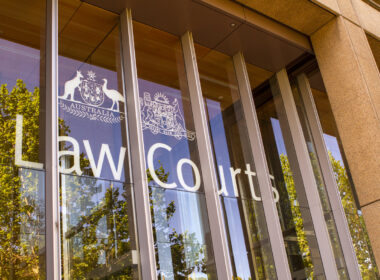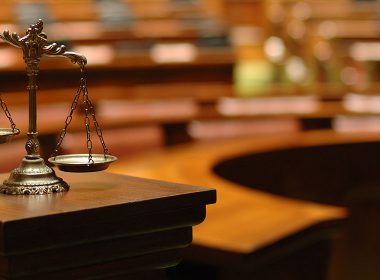Stay home or risk an $11,000 fine. Enter Australia to face two weeks of hotel detention. Severely curb – if not eliminate – your human-to-human contact.
Welcome to the “new normal” of life in the COVID-19 pandemic.
At this early stage in Australia’s experience of the global pandemic, it is hard to tell whether laws that dramatically restrict our citizens’ freedom of movement will be proportionate to the impending health crisis. Most medical experts agree severe “social distancing” measures are justified – for now – to prevent the rapid spread and devastating loss of life that COVID-19 has caused in countries such as China, Italy, Spain and the US.
But their impact on civil liberties and the rule of law has advocacy groups concerned.
“I have never seen anything like this in my lifetime and I am not aware of any previous restriction on movement and basic freedoms, ever, such as we have seen today,” Stephen Blanks, a spokesperson for the NSW Council for Civil Liberties, told LSJ.
Blanks spoke to LSJ on Tuesday 31 March, the morning after the Public Health (COVID-19 Restrictions on Gathering and Movement) Order 2020 was signed into NSW law.
“Today, being the first day of the new regulations which prohibit leaving home except with a reasonable excuse, marks an extraordinary day in our legal history.”
The public health order is the latest in a series of orders introduced by the NSW government in response to the COVID-19 crisis. No less than 13 laws, orders and amendments have marched into effect since 22 March. Six of them severely limit the freedom of movement of NSW citizens.
This week’s restrictions on movement, which NSW Health Minister Brad Hazzard signed into law at 10.20pm on Monday night, are unprecedented. Anyone who leaves home without a “reasonable excuse” faces a maximum penalty of up to $11,000 in fines and six months in prison. While this figure has been widely publicised, the maximum penalty must be prosecuted through the courts. The more likely scenario is that police hand out an on-the-spot $1,000 fine – which, although a far lower sum, is not insubstantial.
The public health order lists a handful of “reasonable excuses” that would give a person reason to leave their home, such as to obtain goods or services, exercise, or attend work that cannot be done from home. The list does not include basic freedoms that could be theoretically done while maintaining social distance, such as “walking the dog” or “getting some vitamin D”. Survival reasons such as “fleeing domestic violence” are a glaring omission.
Blanks told LSJ that hasty drafting was a major flaw of the order to stay at home.
“To access goods and services is a very narrowly expressed exception. There will be situations where people need to leave the home – not just to access services, but just to get out of the home,” Blanks said, indicating research by Women’s Safety NSW that has already reported a 40 per cent spike in calls for help to domestic and family violence services since the COVID-19 outbreak.
Blanks said he was also worried about the lack of oversight or accountability mechanisms for police enforcing the new orders.
“Am I concerned about police not enforcing the law appropriately? Yes, I am. There is a great danger when extraordinary powers are given in an unconstrained way to authorities. It will take great discipline on the part of the police, and great management by police of people on the ground, to try to minimise any abuse of these powers.”
Since 22 March, police powers have been changing almost daily as new orders have been signed into law, often late at night and unbeknown to Australians who are not media-savvy. The Law Council of Australia has flagged concerns that this threatens the most basic tenet of the rule of law – that the law be clear and known to all.
“One of the issues we see is that people don’t clearly understand their rights and responsibilities,” said Pauline Wright, President of the Law Council of Australia.
“The speed with which everything is evolving is a necessary evil in a sense – because the crisis is unprecedented. I think, by and large, our society is prepared to accept such rapid legal changes for now. But the kinds of restrictions being put on us are going to remain acceptable to our community as long as they are proportionate to the crisis, and only last as long as they need to.”
Each NSW public health order has a sunset clause that automatically revokes the law in 90 days. But each new order takes over the previous one’s time limit, effectively resetting the 90-day clock on movement restrictions.
Wright said there was a risk that, if such severe movement restrictions remain in place for too long, the community would reject them. The worst-case scenario could lead to widespread lawlessness.
“The Law Council is supportive of actions that government might need to take to keep us healthy and safe. But the proviso is that it’s to be proportionate and not outlast the crisis,” said Wright.
“Where laws are disproportionate, the community will begin to rebel against them.
“Ultimately law is a social construct. Parliaments are voted in and out and that is the democratic sanction for a government that doesn’t listen. But in the meantime, if you have lawlessness, that is not in anyone’s interest – especially not in the middle of a pandemic.”
This article is part of a longer feature story LSJ is working on, about the impacts on the rule of law and civil liberties created by COVID-19 restrictions, to be published in the May issue of the magazine.
Got a personal story or something to add? Email [email protected]




